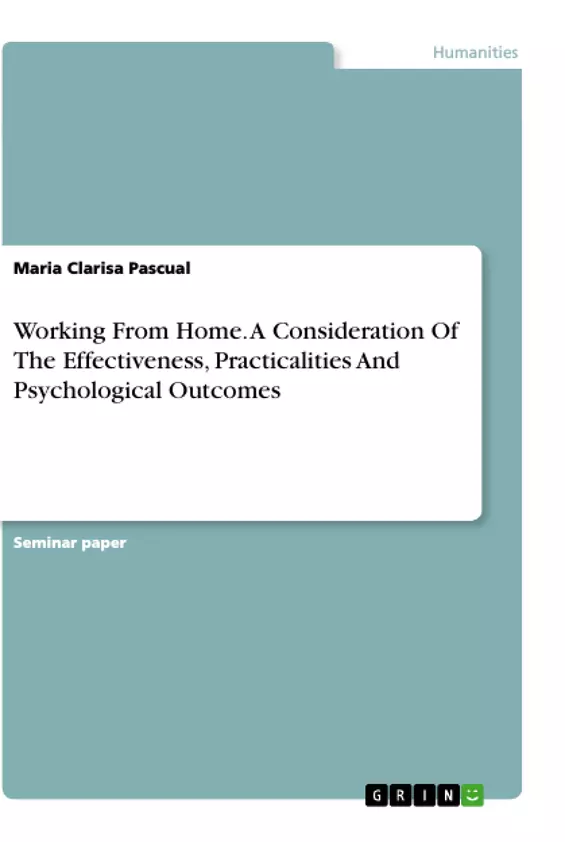This study examined the effectiveness, practicalities, and psychological outcomes of working from home. Since the pandemic hit the world in 2020, there were a lot of changes that needed to be implemented especially in the Philippines. One of the most affected was the workforce. There were people who needed to go physically to work like the health workers and other front liners. For some government offices, they needed to continue working but because the transportation was suspended, many transformed their physical offices to virtual offices and meant that employees would need to work from home.
Inhaltsverzeichnis (Table of Contents)
- Introduction
- Methodology
- Limitations
- Results
- Discussion
- Conclusion
- References
Zielsetzung und Themenschwerpunkte (Objectives and Key Themes)
This study investigates the effectiveness, practicality, and psychological effects of working from home for staff at the Philippine Eye Research Institute (PERI) during natural disasters or crises. The study specifically focuses on the impact of the COVID-19 pandemic on the PERI workforce.
- The impact of working from home on employee productivity and effectiveness.
- The practical challenges and advantages of remote work in the context of a natural disaster or crisis.
- The psychological effects of working from home, including stress levels, isolation, and job satisfaction.
- The role of social interaction and communication in remote work environments.
- The limitations of the study and the need for further research with a larger sample size.
Zusammenfassung der Kapitel (Chapter Summaries)
- Introduction: This chapter sets the context for the study by discussing the increasing popularity of working from home and its potential benefits. It also highlights the unique challenges presented by the COVID-19 pandemic and the need for research on remote work practices in the Philippine setting.
- Methodology: This chapter details the research methodology used in the study, including the questionnaire design, sample size, and demographic information of the participants. It also outlines the study's limitations.
- Results: This chapter presents the findings of the study, including the socio-demographic profile of the PERI staff and their experiences with working from home during the pandemic.
- Discussion: This chapter analyzes the findings and discusses the implications of the study's results for both the PERI staff and organizations in general. It also explores the potential benefits and challenges of working from home in the long term.
Schlüsselwörter (Keywords)
The primary keywords and focus topics of the text include work from home, teleworking, remote working, COVID-19 pandemic, natural disasters, crisis, employee productivity, psychological outcomes, job satisfaction, social interaction, communication, limitations, and research methodology.
- Arbeit zitieren
- Maria Clarisa Pascual (Autor:in), 2020, Working From Home. A Consideration Of The Effectiveness, Practicalities And Psychological Outcomes, München, GRIN Verlag, https://www.grin.com/document/1059624



